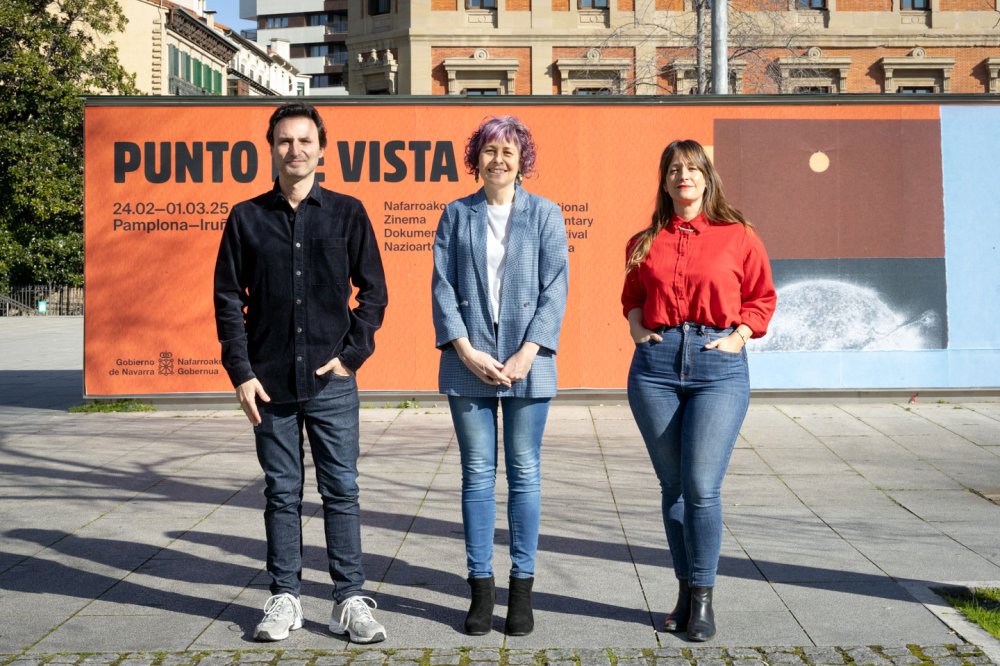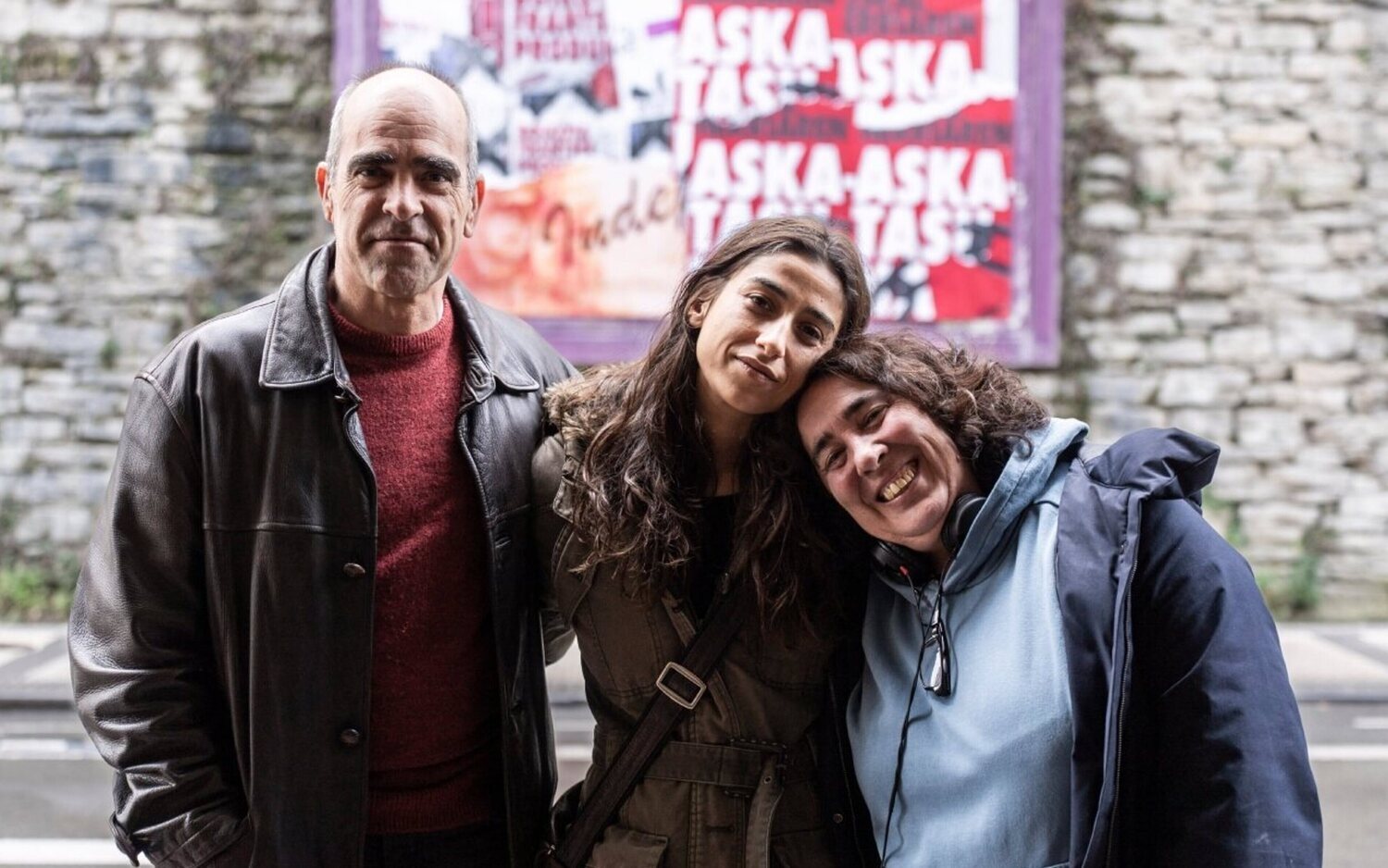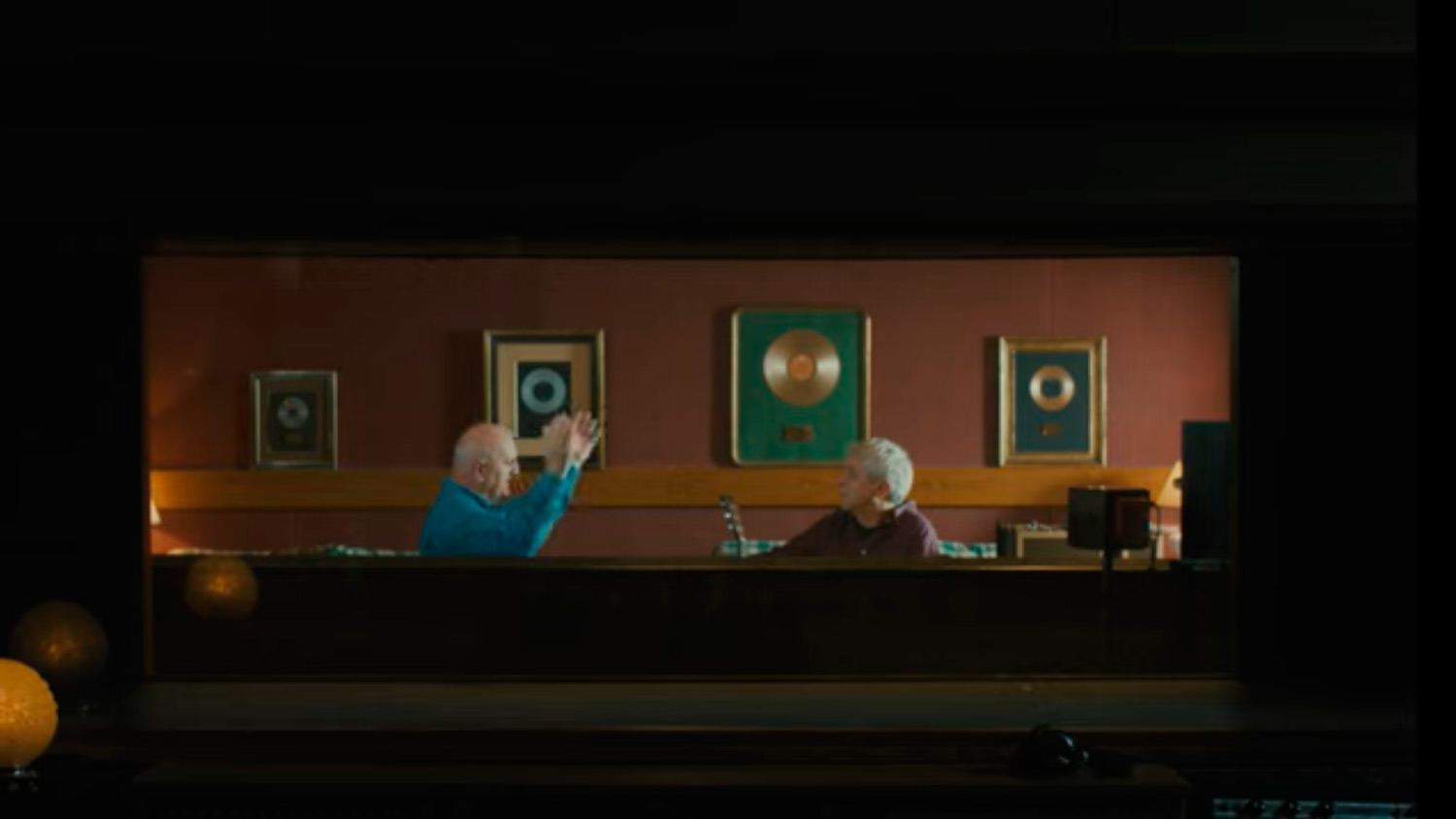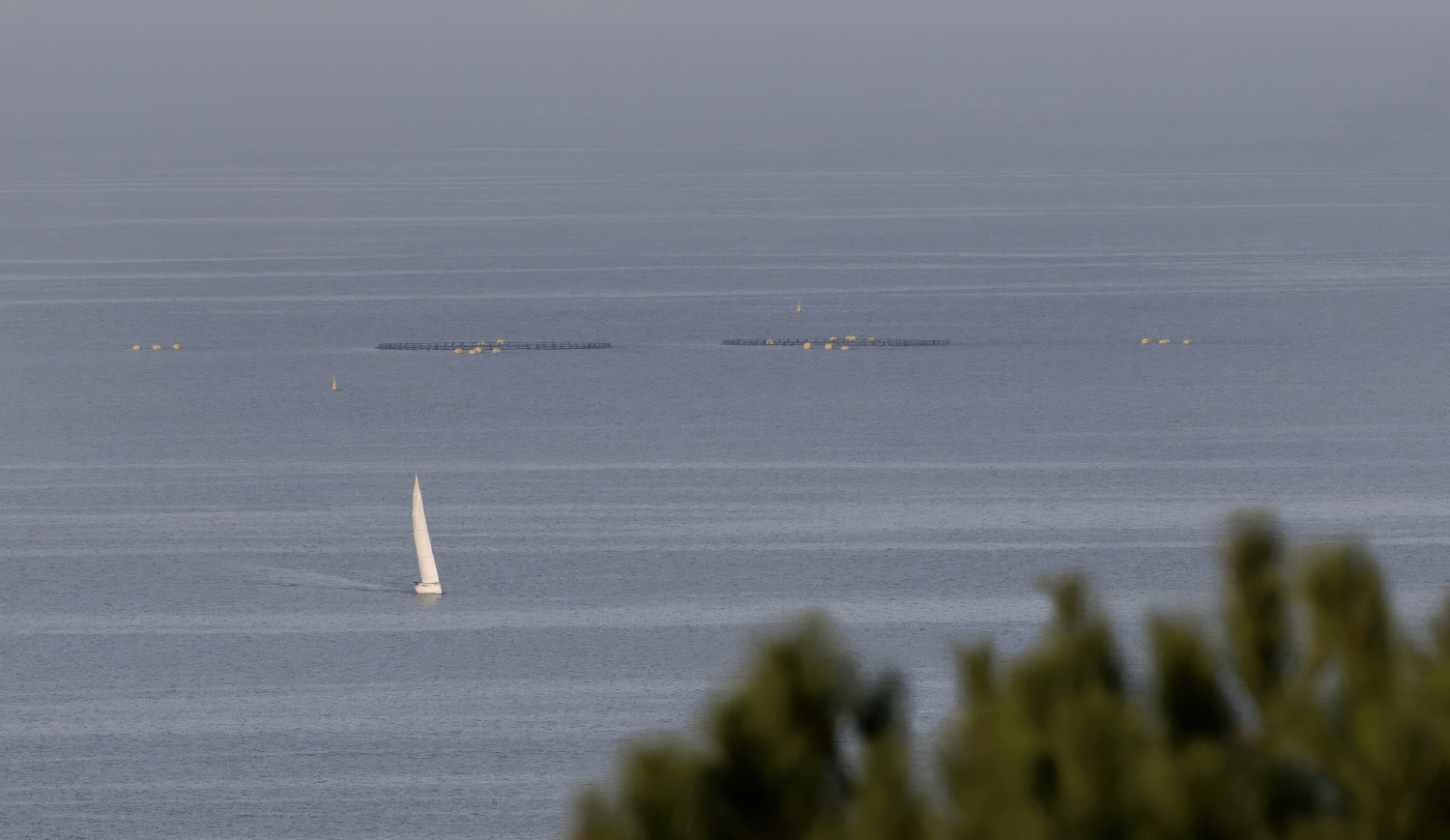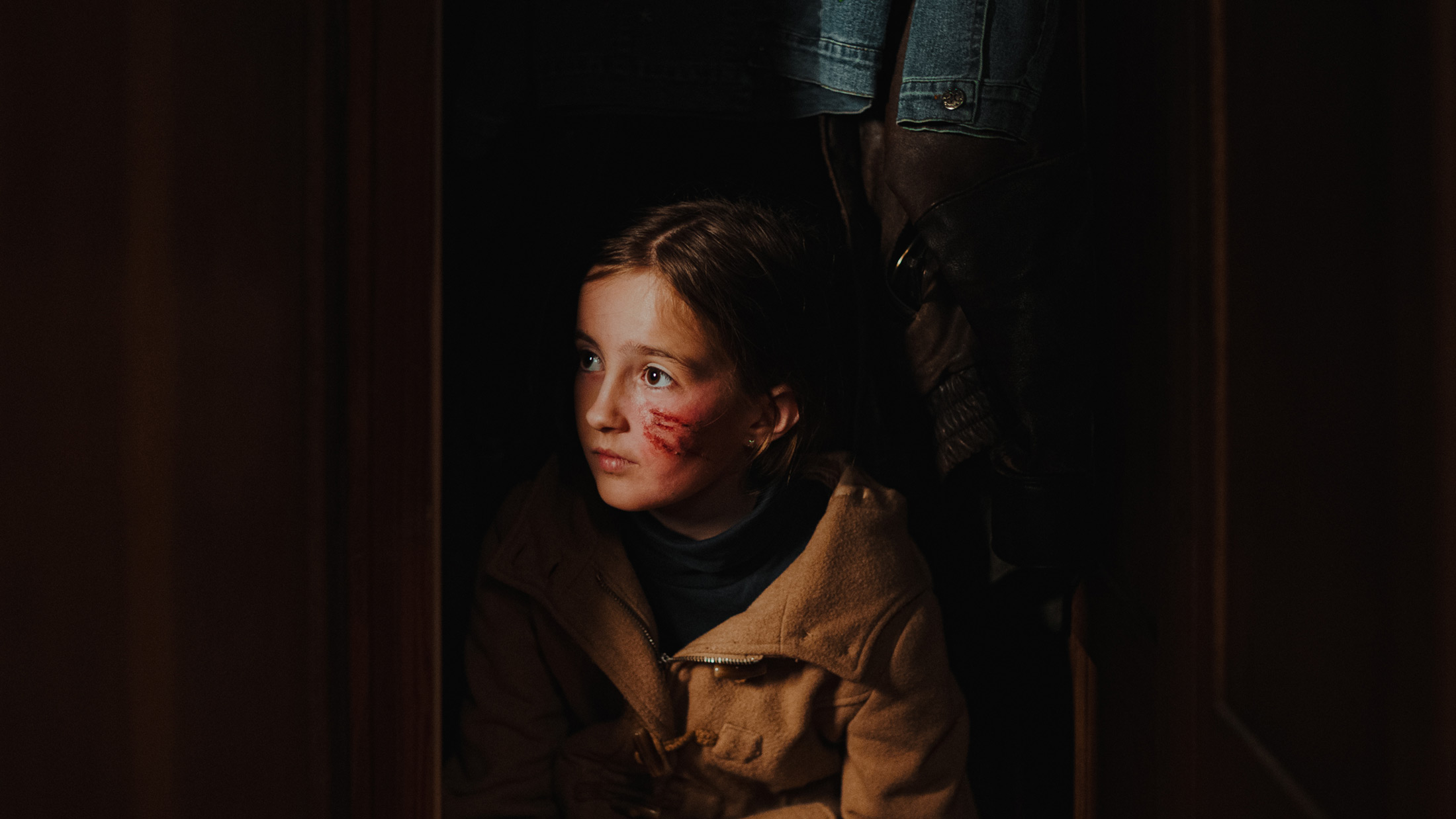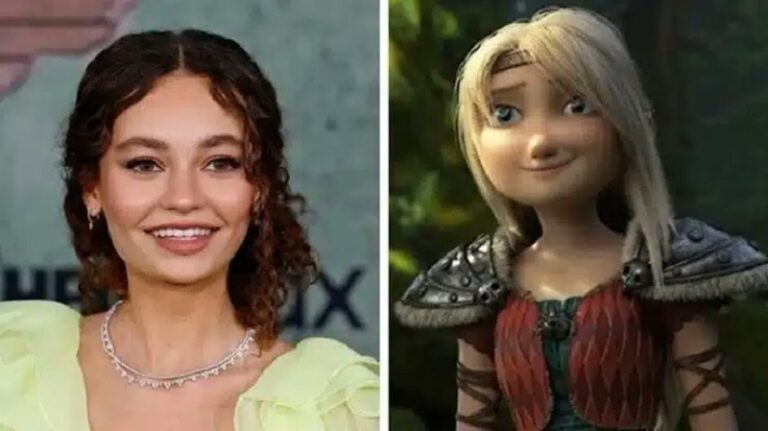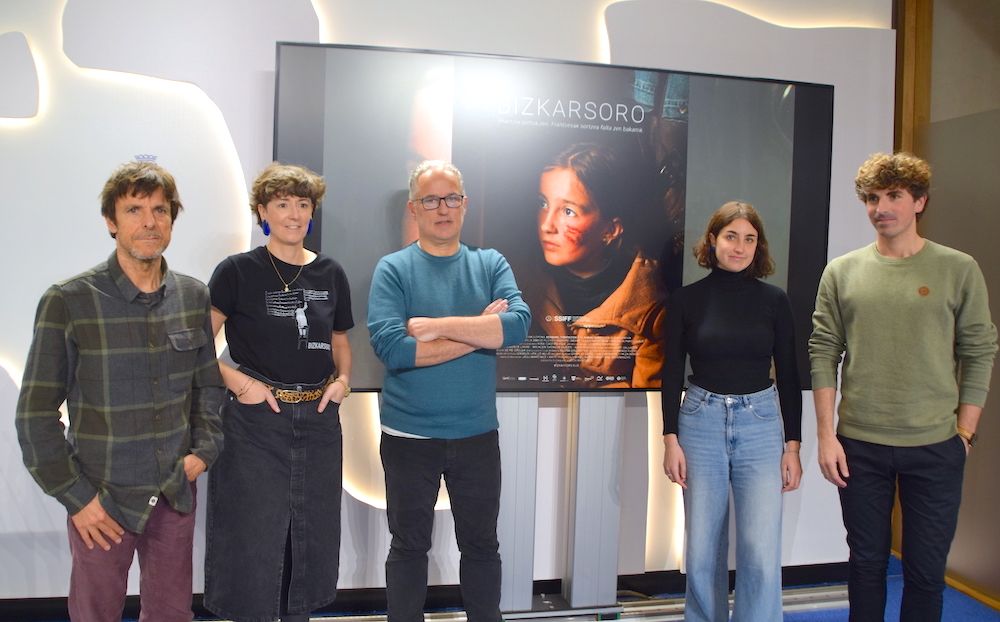"The artistic director has to enrich history, but without covering"
- Mikel Serrano (Iruñea, 1975) has been interviewed with the Goya Prize, and in the film Handia has been tired of it. Perhaps for that reason, he has thanked us for speaking ex officio beyond the film. He speaks slowly, as if he had to properly represent what he is going to say. Visual thinking is not in vain its main tool.
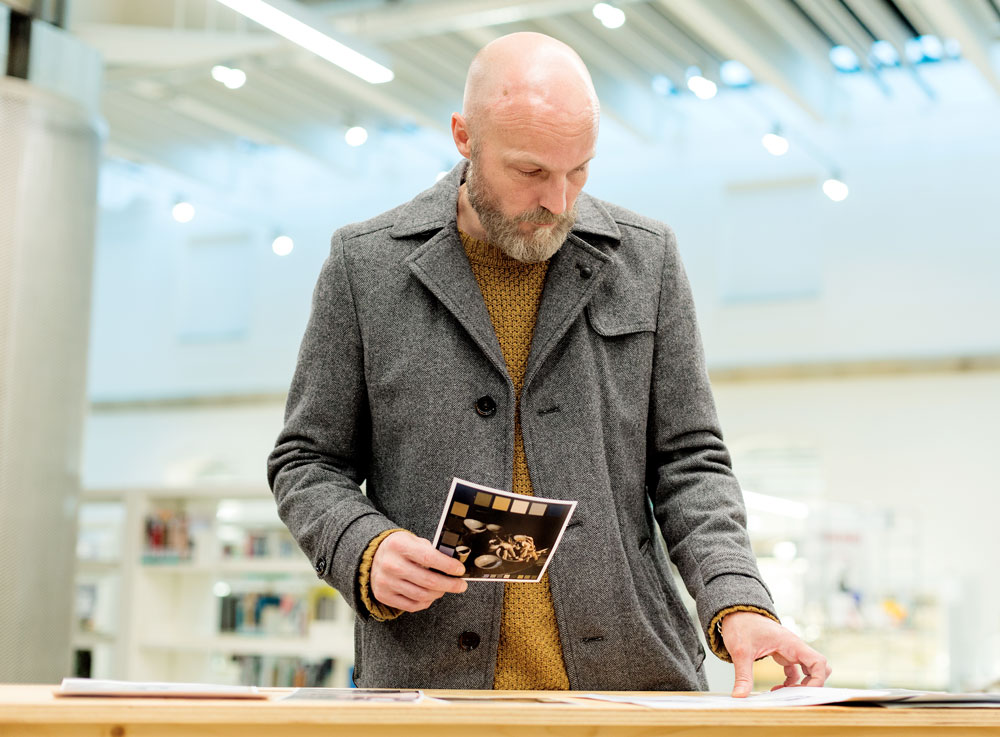
You have been asked a thousand times, but what is the work of the artistic director?
If what you see in a movie is taken away from the actors and their work, what remains is my responsibility, except the light, because there's a lighting job, and that's the job of photography management. Decisions about what you see on the screen have been made by the film director and the artistic director. Simplifying, decorated design, choice of props, choice of colors... That's our job.
If film is a fraud, are you complicit in that fraud?
Cinema is a thymus, because it has that magic. Our job, above all, is to adapt to the style that the film director is looking for, you can never be above it. After all, it is the director who has the responsibility for everything. Therefore, depending on the style of the film in front of you, the work of the artistic director may consist in seeking that deception, or in keeping reality as much as possible. There has been everything in my work.
They say that what goes unnoticed is the best artisan director.
I am a part of it, yes. For an artistic director, it's interesting that a film gives us the opportunity to create a personal world, but if the film doesn't ask for it, and yet, the artistic director engages in that, in the end, that work is going to feel too much, and I don't like that at all. An artistic director and the decor he designs has to be part of the story and enrich it, but without covering the real story.
Your influence directly on stories and characters. It's not just decorated.
We, as decorators, don't use the tools that a conventional decorator uses, because in short, the aesthetic we create has to adapt to a character and has to say a lot of things about that character. It's very interesting because it enriches the situation. You can meet a character in view of its reverse, and you can understand a situation because that reverse is designed for that and it's well designed.
.jpg)
What is your work process?
First, a personal reading and reflection of the idea is made and then the script is analyzed with the director and the style of both the story and the characters is fixed. With this we began to build the same film, both in color and textures, and also in the characteristics of space. Along this road, we also work with the director of photography and use references from other films or works of art to shape the idea, to know what path to follow.
In big, what was the challenge? Simplicity
is the main feature of the film, and that was also the best decision. History itself needed something like this, and in terms of production it was also of great help that such a decision was taken. It was a very difficult project, because we had to create a 19th-century environment, and history was developing in different parts of Europe, but we had to be able to show those places without leaving Euskal Herria. I have a great memory, especially because those of us who participate are committed to the project. We help each other.
The film has won ten Goya awards and one of them has been for you. How have you experienced that success? With a
lot of excitement, because it has given us a lot of joy, personally and collectively. I've taken a big surprise, because when we did the Great we didn't have that goal, we didn't think about it. We wanted to make a good film, but there was no other ambition, and in that sense, it's been amazing. On the other hand, I was very pleased to see that it has become a very important film for people. The awards and recognitions that the film has won have been very important for the people; the arrival of a film in Basque to that point has been a pride for the people, and that has been nice.
As if people had felt the movie?
Yeah, that's it. In addition, this film has approached an audience that does not know Euskera, and that is all well and good. After all, people have lost some fear of Euskera. Maybe it's a lot to say, but so far a Basque film had several walls to break. Well, something's broken. Suppose those who come next don't have that problem, or at least not so much.
Are prizes a relief from the precariousness of the trade?
It is very important to be aware of the measure of the prize. The prizes have been awarded to us for many decisions that are part of the film industry, and that is important. But it is true that everyday reality is there, and the prize does not eliminate it. We must therefore continue to work, waiting for the phone to sound. Films are not made through prizes.
“Zientzia fikzioaren mundua izan dut gustuko txikitatik. Agian horregatik, beti jarri dut arreta pelikuletako alderdi estetikoetan, dekoratuetan, irudietan. Arte Ederrak ikasten nenbilela, laburmetrai batean lan egiteko deitu zidan lagun batek. Han hasi nintzen zineman profesionalki ari ziren batzuk ezagutzen. Geroztik, lanean ikasi dut ikasi dudana. Atrezzista modura hasi, eta arte zuzendari laguntzaile aritu nintzen gerora, 80 egunean filmean, adibidez. Horren ostean eskaini zidaten zuzendari artistiko izatea. Loreak, Amama eta Handia pelikuletan aritu naiz zeregin horretan. Azken honekin eskuratu berri dut Goya saria, zuzendaritza artistiko onenagatik”.
Geroz eta ekoizpen gehiagok baliatzen dituzte teknologia berriak, izan plano orokor eta jendetsuak figurante bidez egitea aurrezteko, izan efektu bereziak are azkarrago egiteko. Azken urtean, dena den, Euskal Herriko zine-aretoak gehien bete dituztenetako bi pelikulek adimen... [+]
Otsailaren 24tik eta martxoaren 1era bitartean, astebetez 60 lan proiektatuko dituzte Punto de Vista zinema dokumentalaren jaialdian. Hamar film luze eta zazpi labur lehiatuko dira Sail Ofizialean; tartean mundu mailako lau estreinaldi eta Maddi Barber eta Marina Lameiro... [+]
A conference for architects has just been held in Madrid to discuss the crisis of the professional architect. They have distinguished the traditional and contemporary way of being an architect. What is traditional? From the epic architect who appears in The Brutalist, where... [+]
Itoiz, udako sesioak filma estreinatu dute zinema aretoetan. Juan Carlos Perez taldekidearen hitz eta doinuak biltzen ditu Larraitz Zuazo, Zuri Goikoetxea eta Ainhoa Andrakaren filmak. Haiekin mintzatu gara Metropoli Foralean.












